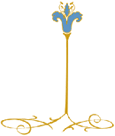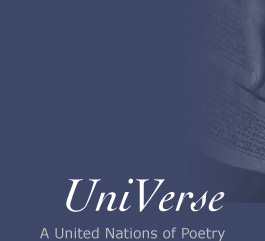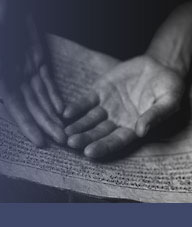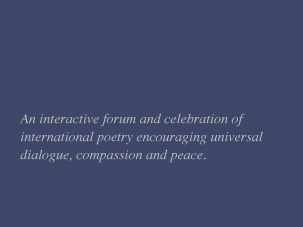| |
 |
 |
 |
Li-Young Lee is the author of three critically acclaimed books of poetry, his most recent being Book of My Nights (BOA Editions, 2001). His earlier collections are Rose (BOA, 1986), winner of the Delmore Schwartz Memorial Award from New York University, The City in Which I Love You (BOA, 1991), the 1990 Lamont Poetry Selection; and a memoir entitled The Winged Seed: A Remembrance (Simon and Schuster, 1995), which received an American Book Award from the Before Columbus Foundation. A new volume, Behind My Eyes, is forthcoming by W.W. Norton in January 2008. Lee's honors include fellowships from the National Endowment for the Arts, The Lannan Foundation, and the John Simon Guggenheim Memorial Foundation, as well as grants from the Illinois Arts Council, the Commonwealth of Pennsylvania, and the Pennsylvania Council on the Arts. In 1988 he received the Writer's Award from the Mrs. Giles Whiting Foundation.
Born in 1957 of Chinese parents in in Jakarta, Indonesia, Lee learned early about loss and exile. His great grandfather was China's first republican President, and his father, a deeply religious Christian, was physician to Communist leader Mao Tse-Tung. After the establishment of the People's Republic of China in 1949, Lee's parents escaped to Indonesia. In 1959, his father, after spending a year as a political prisoner in President Sukarno's jails, fled Indonesia with his family to escape anti-Chinese sentiment. After a five-year trek through Hong Kong, Macau, and Japan, they settled in the United States in 1964.
Through the observation and translation of often unassuming and silent moments, the poetry of Li-Young Lee gives clear voice to the solemn and extraordinary beauty found within humanity. By employing hauntingly lyrical skill, and astute poetic awareness, Lee allows silence, sound, form, and spirit to emerge brilliantly onto the page. His poetry reveals a dialogue between the eternal and the temporal, and accentuates the joys and sorrows of family, home, loss, exile, and love. In “The City In Which I love You,” the central long poem in his second collection, Li-Young Lee asks, “Is prayer, then, the proper attitude/for the mind that longs to be freely blown,/but which gets snagged on the barb/called world, that/tooth-ache, the actual?” Anyone who has seen him read will add that Lee is also one of the finest poetry readers alive.
He lives in Chicago with his wife Donna, and their two sons.
 Read more about Li-Young Lee at Blue Flower Arts. Read more about Li-Young Lee at Blue Flower Arts.
|
 |
 |
English
version
In His Own Shadow
He is seated in the first darkness
of his body sitting in the lighter dark
of the room,
the greater light of day behind him,
beyond the windows, where
Time is the country.
His body throws two shadows:
One onto the table
and the piece of paper before him,
and one onto his mind.
One makes it difficult for him to see
the words he’s written and crossed out
on the paper. The other
keeps him from recognizing
another master than Death. He squints.
He reads: Does the first light hide
inside the first dark?
He reads: While all bodies share
the same fate, all voices do not. |
 |
 |
English
version
Have You Prayed
When the wind
turns and asks, in my father’s voice,
Have you prayed?
I know three things. One:
I’m never finished answering to the dead.
Two: A man is four winds and three fires.
And the four winds are his father’s voice,
his mother’s voice…
Or maybe he’s seven winds and ten fires.
And the fires are seeing, hearing, touching,
dreaming, thinking…
Or is he the breath of God?
When the wind turns traveler
and asks, in my father’s voice, Have you prayed?
I remember three things.
One: A father’s love
is milk and sugar,
two-thirds worry, two-thirds grief, and what’s left over
is trimmed and leavened to make the bread
the dead and the living share.
And patience? That’s to endure
the terrible leavening and kneading.
And wisdom? That’s my father’s face in sleep.
When the wind
asks, Have you prayed?
I know it’s only me
reminding myself
a flower is one station between
earth’s wish and earth’s rapture, and blood
was fire, salt, and breath long before
it quickened any wand or branch, any limb
that woke speaking. It’s just me
in the gowns of the wind,
or my father through me, asking,
Have you found your refuge yet?
asking, Are you happy?
Strange. A troubled father. A happy son.
The wind with a voice. And me talking to no one. |
 |
 |
English
version
Immigrant Blues
People have been trying to kill me since I was born,
a man tells his son, trying to explain
the wisdom of learning a second tongue.
It’s an old story from the previous century
about my father and me.
The same old story from yesterday morning
about me and my son.
It’s called “Survival Strategies
and the Melancholy of Racial Assimilation.”
It’s called “Psychological Paradigms of Displaced Persons,”
called, “The Child Who’d Rather Play than Study.”
Practice until you feel
the language inside you, says the man.
But what does he know about inside and outside,
my father who was spared nothing
in spite of the languages he used?
And me, confused about the flesh and the soul,
who asked once into a telephone,
Am I inside you?
You’re always inside me, a woman answered,
at peace with the body’s finitude,
at peace with the soul’s disregard
of space and time.
Am I inside you? I asked once
lying between her legs, confused
about the body and the heart.
If you don’t believe you’re inside me, you’re not,
she answered, at peace with the body’s greed,
at peace with the heart’s bewilderment.
It’s an ancient story from yesterday evening
called “Patterns of Love in Peoples of Diaspora,”
called “Loss of the Homeplace
and the Defilement of the Beloved,”
called “I Want to Sing but I Don’t Know Any Songs.” |
 |
 |
English
version
Trading For Heaven
I saw you at the top of the stairs.
Now I live a secret life.
I saw you holding open the door.
Now I’m filling pages with
things I can’t tell anyone.
Now I’m more alone than I’ve ever been.
I traded every beyond, every someday,
for heaven in my lifetime. Now I’m dying
of my life. Now I’m alive
inside my death.
Do you see the space between our bodies?
Barely a hand, hardly a breath,
it is the space mountains and rivers are made of.
It is the beginning of oceans, the space
between either and or, both and neither,
the happiness of forgetting
our names and the happiness of hearing them
for the first time. I heard you
singing yourself to sleep.
It was a song from both of our childhoods.
And now I don’t know if singing
is a form of helplessness,
Time’s architecture revealed,
or some inborn motive all blood
and breath obey
to enact a savage wheel.
I found you at dawn
sitting by the open kitchen window.
You were sorting seeds in a plate.
And if you were praying out loud,
I’ll never tell.
And if you were listening to the doves,
and if their various whoo-ing, and coo-ing,
and dying in time,
are your earliest questions blown back to you
through the ragged seasons,
and if you’ve lived your life
in answer to those questions,
I’ll never tell.
Your destiny is safe with me.
Your childhood is safe with me.
What you decide to bury is safe with me. |
 |
 |
|
 |
|





